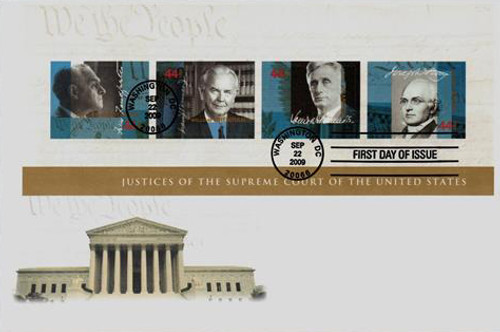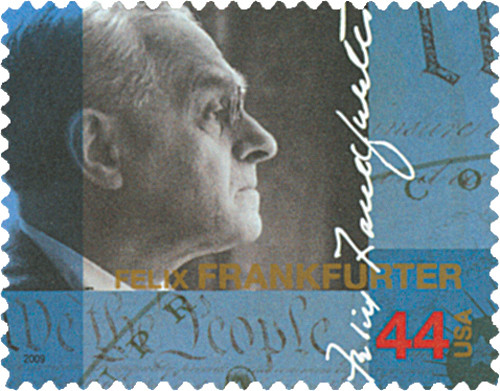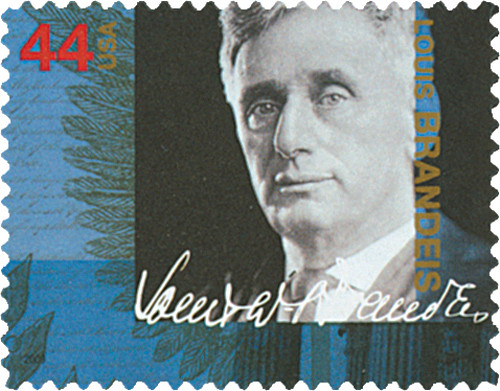
# 4422 - 2009 44c Supreme Court Justices
Supreme Court Justices
Issue Date: September 22, 2009
City: Washington, DC
In the spring of 1787, the Founding Fathers gathered in Philadelphia to write a new constitution. One hundred days later, tears streamed down Benjamin Franklin’s face as he put his name to the 4,400-word document that gave birth to the United States of America.
The U.S. Constitution is the shortest document of its kind and has several areas that are subject to interpretation. Questions of law regarding its meaning fall within the province of the Justices of the Supreme Court of the United States. Their historic decisions on civil liberties, industry, and the balance of interests between individuals and government touch the lives of Americans in countless ways every day.
Justice Joseph Story wrote an 1816 opinion that determined the Supreme Court had authority over states in matters of federal law. His decision laid the foundation for extending civil rights decisions across the nation. Louis Brandeis, who believed in interpreting intent rather than following the Constitution literally, used this precedent to establish rights of free speech and privacy. William Brennan later extended Brandeis’ finding of a right to privacy to birth control and abortion rights.
Felix Frankfurter, a liberal who also believed legislating law was a matter for Congress rather than the judiciary branch, favored a restrained approach to interpreting law. Frankfurter played a critical role in Brown vs. Board of Education, a pivotal case in which the court instructed public schools to desegregate with “all deliberate speed.”
Supreme Court Justices
Issue Date: September 22, 2009
City: Washington, DC
In the spring of 1787, the Founding Fathers gathered in Philadelphia to write a new constitution. One hundred days later, tears streamed down Benjamin Franklin’s face as he put his name to the 4,400-word document that gave birth to the United States of America.
The U.S. Constitution is the shortest document of its kind and has several areas that are subject to interpretation. Questions of law regarding its meaning fall within the province of the Justices of the Supreme Court of the United States. Their historic decisions on civil liberties, industry, and the balance of interests between individuals and government touch the lives of Americans in countless ways every day.
Justice Joseph Story wrote an 1816 opinion that determined the Supreme Court had authority over states in matters of federal law. His decision laid the foundation for extending civil rights decisions across the nation. Louis Brandeis, who believed in interpreting intent rather than following the Constitution literally, used this precedent to establish rights of free speech and privacy. William Brennan later extended Brandeis’ finding of a right to privacy to birth control and abortion rights.
Felix Frankfurter, a liberal who also believed legislating law was a matter for Congress rather than the judiciary branch, favored a restrained approach to interpreting law. Frankfurter played a critical role in Brown vs. Board of Education, a pivotal case in which the court instructed public schools to desegregate with “all deliberate speed.”












